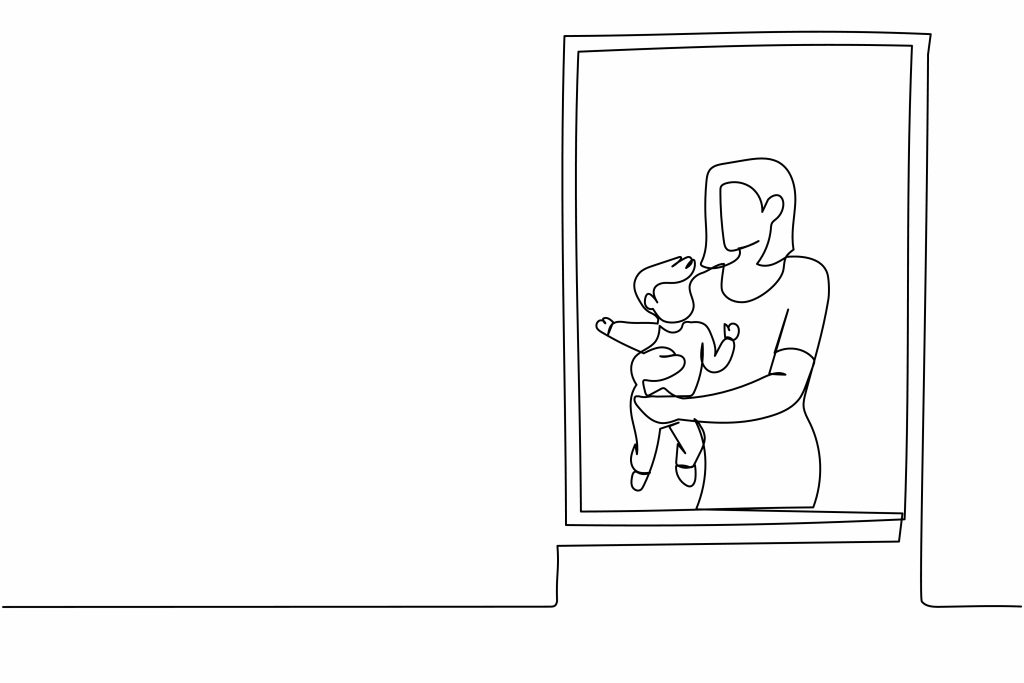Case Studies and Reflective Tools
Case Study: I Just Need You To Answer Me

After several years of working in Orthodox Jewish homes, I had reached peak cultural competency. I knew all the rules of kosher eating and modest dressing: I knew that I shouldn’t sing or dance in front of men, and I kept a calendar of the high holidays in my day planner. Due to my perceived cultural proficiency with the Orthodox community, I was referred to work with a Haredi family that strictly followed Jewish laws and withdrew from the secular culture as much as possible. The child’s father was a well-respected Haredi Rebbi.
While I had met both Zalman’s parents, almost all of my interactions for the first six months I worked with the family were with his mother, Chaya Miriam, or his older sisters who shared in Zalman’s care. One day, Chaya Miriam had to leave unexpectedly to pick up another child from school. She didn’t want to end the early intervention session, so she told me that her husband was home in his office studying and that I wasn’t alone with Zalman. Chaya Miriam rushed out and said she would be back before the end of the hour, as the school was just down the block. She reminded me to leave the front door open so that I was not technically considered alone with the Rebbe.
At the end of the session, Rebbe Mendel had not come out of the office, and Chaya Miriam hadn’t returned. I knocked on the door and said that I had to leave, so I needed him to come out and get the baby. He did not respond. I waited a few more minutes and knocked again—still nothing. Then I thought that perhaps he didn’t want to come out of his office to be alone in the house with a woman he wasn’t related to. This time, I knocked and said, “If you let me know that you are here, I can put the baby in his crib. Then you can come get him once I leave.” -still no answer. I tried again, “I just need you to answer me so that I can leave.”
By this point, I was very late for my next appointment and very angry that I was in a position where I couldn’t safely leave because I didn’t know if the baby would be attended to. I tried to call Zalman’s mother, but she had left her cell phone at home. Finally, 25 minutes after the scheduled end of the session, Chaya Miriam returned. I knew that I was angry, so I handed her the baby and said, “I tried and tried to speak to Rebbe Mendel, but he wouldn’t answer me. I hope that he is okay in his office.” Chaya Miriam smiled at me and replied, “Of course he didn’t. He is too religious to speak to a woman without a chaperone. Next time, just call me instead.”
Reflection Questions
- What values were Chaya Miriam and Rebbe Mendel living out in this scenario?
- Which of my American dominant cultural values may have been challenged in this situation?
- If you had been the EI practitioner in this situation, which of your values would have been challenged?
- As the EI practitioner in this situation, what do you think I did well to work proficiently across cultures and value systems?
- What could I have done differently?
- What does this scenario indicate about the holes in my cultural proficiency working with Haredi families?
After reading Chapter 5, use the stages of the Gibbs Reflective Practice Cycle to make sense of this scenario. Describe what happened, how each adult in the situation was feeling at the time and how you think that I felt afterward, evaluate what did and did not go well, Analyze why you think those things did or did not go well, conclude what I should do differently next time, and make an action plan for how I can build the knowledge and skills to better handle this or situations like it in the future.

